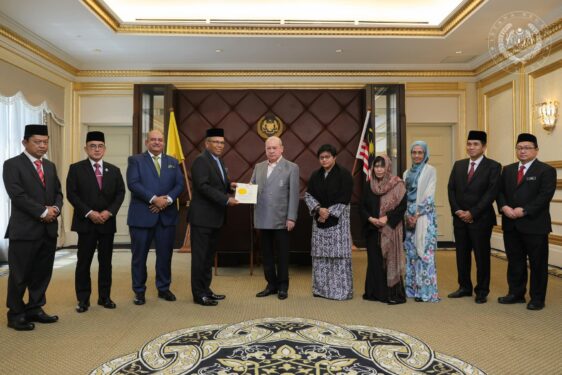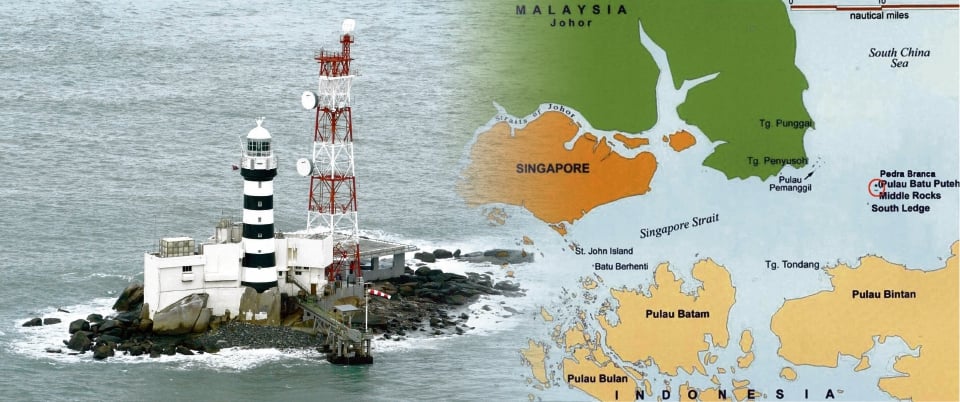THE Yang di-Pertuan Agong (YDPA) Sultan Ibrahim Sultan Iskandar has announced the establishment of the Royal Commission of Inquiry (RCI) to review the way how twice former premier Tun Dr Mahathir Mohamad handled the cases involving the sovereignty of Batu Puteh, Middle Rocks and South Ledge.
That the country’s 17th Agong wasted no time in setting up the first RCI after he assumed the throne on Jan 31 shows that the Johor ruler is serious about getting to the bottom of things.
In fact, every sound thinking Malaysian has the right to know how the decision was made by Dr Mahathir without proper consultation with Sultan Ibrahim himself. Under the Federal Constitution, land matters are under the states.
Dr Mahathir’s sheer arrogance has certainly left the YDPA fuming over the past few years to have caused His Majesty to set up this RCI which will be chaired by former Chief Justice Tun Md Raus Sharif as the chairman and former Federal Court judge Tan Sri Zainun Ali as the deputy chairman.
Legal advice to Tun M
It is learnt that Dr Mahathir’s lawyer may advise the nonagenarian against attending the RCI if Tun Md Raus chairs the RCI but an important question to ask is whether Dr Mahathir can defy the summon issued by the RCI to appear before the commissioners?
For this, we look at what is advised by the legal fraternity. To begin with, “members of RCI are appointed by the YDPA and they normally consist of retired judges”, according to AskLegal, a website attempting to answer all legal matters.
The RCI is regulated by the Commissions of Inquiry Act 1950 which states that the Agong has the discretion to choose the commissioner, including its chairman.
As this fall within the discretion of the YDPA, there are no set requirements as to who can or cannot be picked to chair the RCI.
In fact, AskLegal makes it very clear that “although commissioners of RCI are normally ex-judges and it carries similarities with court, it is not a court.”
Hence, unlike in the court of law where judges can recluse themselves, the RCI has a different set-up. It is therefore superfluous to even think that the Agong has erred in appointing Tun Md Raus as chairman.
To go against the discretion of the Agong means to incur his displeasure and there is no sign that the YDPA has set aside his decision. The appointment proceeded with the appointment of the former chief judge as chairman.
It is unlikely that the comments made by Dr Mahathir’s lawyer would make a difference; in fact, it can be seen as an attempt to create doubts before even the RCI is given the chance to carry out its work.
After much consideration, the Agong may have decided that Tun Md Raus is the most suitable person to lead the inquiry due to perhaps his knowledge in the matter more than any other person.
For the record, Dr Mahathir’s lawyer Muhammad Rafique Rashid Ali has claimed in a statement that the Federal government’s Feb 14 appointment of Tun Md Raus as chairman of the Batu Puteh RCI was a “violation of natural justice” as he is allegedly an “interested party”.

Henceforth, he would advise his client to skip the RCI on the sovereignty of several islets near Johor and Singapore if Tun Md Raus remains as the RCI chairman.
Can Dr Mahathir escape?
The answer is obvious: Dr Mahathir cannot choose not to attend the RCI.
Clause 8 (d) of the Commission of Inquiry Act 1950 states that the power of the commissioners include issuing a warrant of arrest to compel the attendance of any person who, after having been summoned to attend, fails to do so, and does not excuse such failure to the satisfaction of the Commissioners, and to order him to pay all costs which may have been occasioned in compelling his attendance or by reason of his refusal to obey the summons, and also to fine such person a sum not exceeding fifty ringgit (RM50).
Clause 13 further states that “Any person who commits an act of contempt as defined in section 14 against the Commissioners or any of them shall be guilty of an offence and shall, on conviction, be liable to a fine not exceeding one hundred ringgit (RM100) or to imprisonment for a term not exceeding three months”.
Although the fine may be pittance in today’s context, the power of arrest and a jail sentence for a period not exceeding three months is enough to compel the country’s longest serving prime minister of 22 years and 22 months to attend the RCI so long as he is blessed with good health and longevity. – Feb 20, 2024
Main pic credit: Berita Harian









